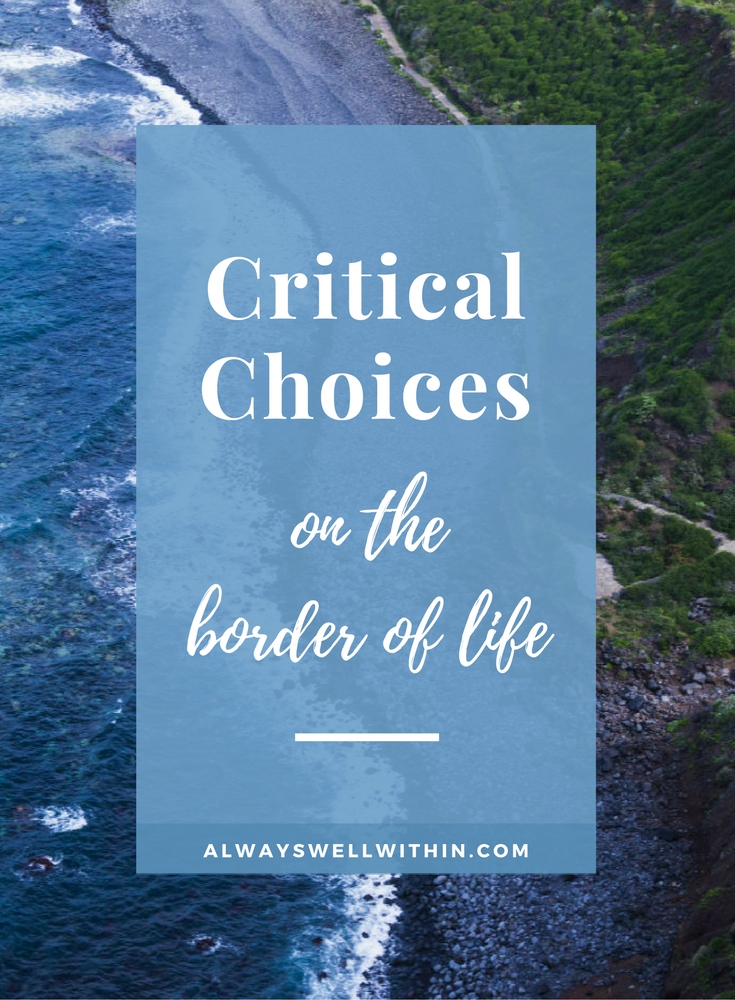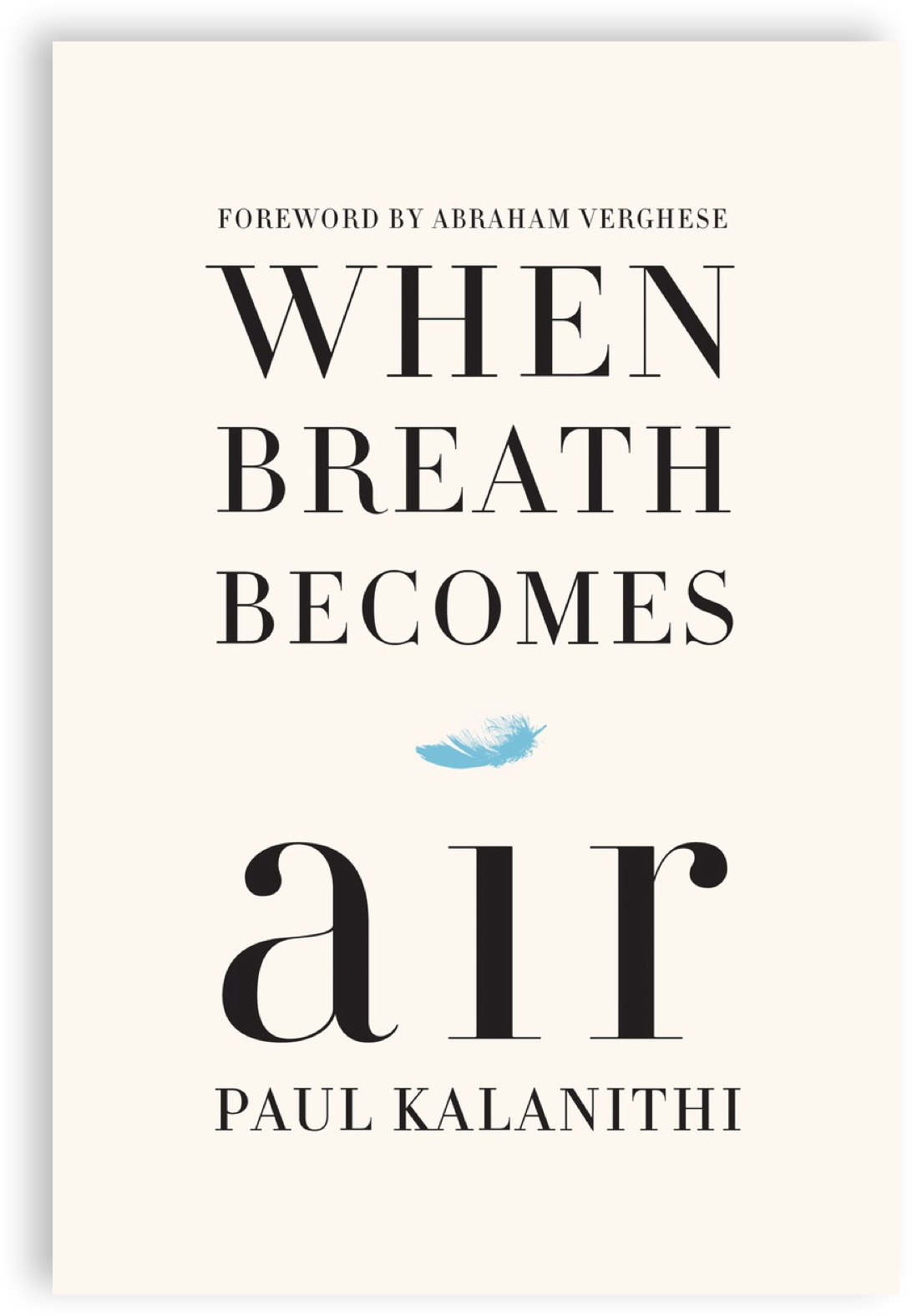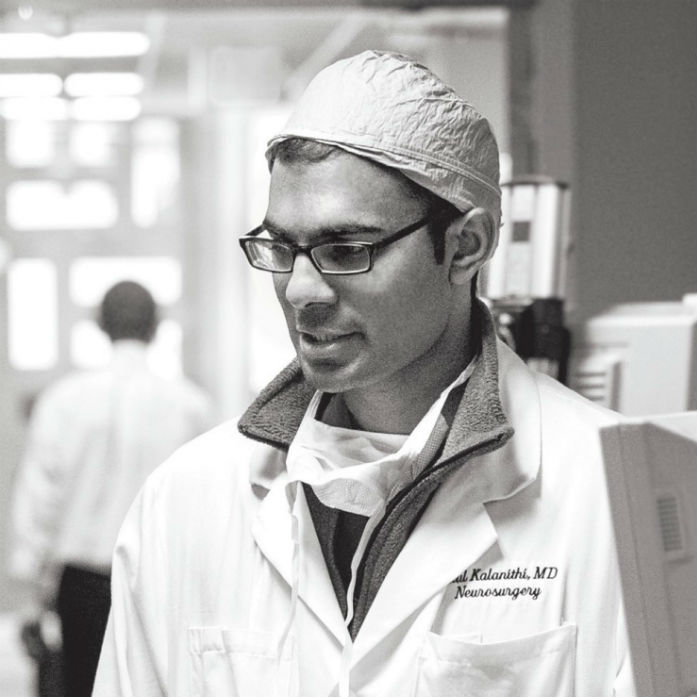
The common man whose identity is based on ego will do everything to live, but the spiritual man who is searching for truth, will take every opportunity to die. What does it mean to die? To die to one's ignorance, to die to the ego, to die to fear, to die to suffering, to die to misconception, to die to judgements so they can really wake up to their timeless reality. - Mooji
Raw. Vulnerable. Honest. Those words jump immediately into my mind when I attempt to describe the New York Times Bestseller, When Breath Becomes Air by Paul Kalanithi.
I rarely read books these days. But this one traveled around my circle so I couldn’t miss it. And, to be honest, I’m fascinated by death at the moment.
I want to know death in its stark reality so I can face it truthfully. I want to know the myriad emotions that might arrive when death says hello - from fear to denial to great compassion to release from worldly concerns. I want to know the gifts a prospective death promises to bring, at least to those who are willing to acknowledge and embrace it: For example, the ability to embrace each moment fully with loving awareness.
What Then Is the Meaning of Life?
When Breath Becomes Air beautifully stirs up and addresses many existential questions, especially those related to identity. It looks at the life-shattering, disorienting, and dislocating experience of a potentially fatal diagnosis, which makes every new moment uncertain.
Two questions remained with me as I concluded reading and continued to reflect on the essence of this book.
- As much as we say we want to live, why don’t we take care of ourselves fully so that might be the outcome - me included?
- On the other hand, is the true purpose of a human life simply to preserve one's own existence at all costs?
As background information, here’s a short summary of the book:
At the age of thirty-six, on the verge of completing a decade’s worth of training as a neurosurgeon, Paul Kalanithi was diagnosed with stage IV lung cancer. One day he was a doctor making a living treating the dying, and the next he was a patient struggling to live. Just like that, the future he and his wife had imagined evaporated. When Breath Becomes Air, which features a Foreword by Dr. Abraham Verghese and an Epilogue by Kalanithi’s wife, Lucy, chronicles Kalanithi’s transformation from a naïve medical student 'possessed,' as he wrote, 'by the question of what, given that all organisms die, makes a virtuous and meaningful life' into a young neurosurgeon at Stanford, guiding patients toward a deeper understanding of death and illness, and finally into a patient and a new father to a baby girl, confronting his own mortality.

These questions arose for me because Kalanithi returned to his ultra-demanding neurosurgery at the conclusion of his first round of cancer treatment. Yes, the scans showed his lung tumors dissolving, but physical discomfort continued as his constant companion.
Kalanithi himself feels he went through Kubler-Ross’s five stages of grief in reverse, with acceptance coming first and denial last, the latter influencing his decision to return to neurosurgery. He claimed that denial might be the only viable way forward, not knowing if you have minutes, months, or years to live.
The monolithic uncertainty of my future was deadening; everywhere I turned, the shadow of death obscured the meaning of any action.
But finally, clarity revealed what he considered to be the best course of action.
Self-Care Or Compassion?

One morning, Kalanithi felt he couldn’t face another day in pain without a project beyond breakfast. The seas of uncertainty parted, he says. He decided to push himself to return to the operating room. Why?
Because I could. Because that’s who I was. Because I would have to learn to live in a different way, seeing death as an imposing itinerant visitor but knowing that even if I’m dying, until I actually die, I am still living.
...Eventually, though, the itch to hold a surgical drill again had become too compelling. Moral duty has weight, things that have weight have gravity, and so the duty to bear mortal responsibility pulled me back into the operating room.
At first he returned at a slower pace. But then the ante increased, when medical authorities required him to take on full duties in order to complete his residency and graduate. Nausea, pain, and fatigue plagued Kalanithi, but he expanded his hours and his duties, nevertheless. He upped his doses of Tylenol, NSAIDS and antiemetics to keep going.
Half a year later, while he was interviewing for a job in Wisconsin, he realized:
For the last several months, I had striven with every ounce to restore my life to its pre-cancer trajectory, trying to deny cancer any purchase on my life. As desperately as I now wanted to feel triumphant, instead I felt like the claws of the crab holding me back. The curse of cancer created a strange and strained existence, challenging me to be neither blind to, nor bound by, death’s approach. Even when the cancer was in retreat, it cast long shadows.
Seven months after Kalanithi returned to the operating room as a neurosurgeon, a new tumor - a large one - appeared in the middle of his right lobe. With a new round of cancer treatment, came his consequent divorce from neurosurgery. Kalanithi died about 9 months later, less than a year after the birth of his daughter, who brought joy and sparkle into his dissolving life.
Action Or Retreat?
I don’t think any of us can possibly know what the right decision might be when it comes to another person’s treatment for a life-threatening illness.
At first, I wondered: Why did Kalanithi return to the operating room and expose himself to high levels of stress, strain, and fatigue, which could only be an overwhelming burden on his barely recovered system? Was it the inability to live with uncertainty, to live without a solid identity, or to live without an obvious purpose that drove him to do so?
At the same time, Kalanithi considered neurosurgery to be sacred work. He speaks of moral gravity as the impetus which drew him back to the operating room. Perhaps such compassionate motivation serves as the only true purpose and real reason for a human life. Perhaps our life holds the most meaning when we’re willing to sacrifice it for others.
Is there an alternative? In Tibet - before the invasion of the Chinese - a person struck by a potentially fatal illness would often retreat from the world into spiritual practice. Tibetan Buddhism offers a complete roadmap to help you prepare for death and what occurs both at the moment of death and during the in-between states afterward. Interestingly, instead of dying, some would actually recover their health due to the power of the practice.
A spiritual spark touched Kalinithi as well. He returned to his childhood Christian faith during his later rounds of treatment. Literature also strongly influence his views and his choices.
Western theology, from the little I understand, does not provide a charted course for one’s travel from the onset of illness to the entrance door of another world. I image it can feel like a solitary journey. Understandably, one might feel at a loss for what to do in the state of uncertainty, and thus feel the impetus to choose action over being.
What Choices Will You Make at the Border of Life?
An inquisitive man, Kalanthini grappled with the questions of life and death from an early age. In fact, his own fascination with the meaning of life and his desire to help the dying and their families set off his journey into neurosurgery.
Because no single answer exists when it comes to your choices at the border of life, it seems appropriate to raise questions for contemplation, just as Kalanithi has done in When Breath Becomes Air. Perhaps, these reflections might bring you closer to knowing how you would like to be, to feel, and to act, when faced with the distinct knowledge that death might be near, but the exact timing uncertain.
- Would it help to learn to hold your identity lightly?
- How would you begin to let go of your attachments to this life?
- How would you accept that it’s truly okay to die?
- Will you create a transition period to be still with your true self until death arrives?
- What is your moral duty?
- Does your value depend on doing?
- Is there merit in simply being?
- What would be the best balance of doing and being if you were give a limited time to live?
- Will you keep working until the last possible minute?
- What lessons do you take away from Kalinithi’s story?
We know one thing for certain: Life is fatal. You don’t have to be diagnosed with a life-threatening illness to die. Death could come at any moment.
So how do you live fully now, filling each moment with meaning, while balancing that dedication and determination with an equally constant willingness to let go?
P. S. You might also like A Simple Formula for a Sweet Life, another end-of-life story.
Thank you for reading! I appreciate your presence. Have you signed up for my monthly note – Wild Arisings – yet? Learn more and join here – you’ll get some goodies too. May you be well, happy, and safe – always. With love, Sandra
Photo: Norbert von der Groeben- Stanford Health Care
